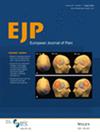Physical and Mental Health of Fibromyalgia Patients Following October 7th Attack and the Ensuing Military Conflict: A Cross-Sectional Analysis
Abstract
Background
Fibromyalgia symptoms can be exacerbated by acute or chronic stress. Although military conflicts have been associated with increased rates of PTSD and fibromyalgia in military personnel, civilian populations exposed to such conflicts are also at a higher risk of chronic pain and somatic symptoms.
Aim
This study aims to assess the physical and mental health of fibromyalgia patients in Israel following the October 7th attacks and to identify key risk and protective factors.
Methods
An online survey conducted in January 2024 gathered data from fibromyalgia patients across Israel, a population exposed to intense conflict-related stressors, including missile attacks, mass evacuations and widespread military mobilisation. The survey addressed demographics, health behaviours, access to medical services, anxiety, depression, coping mechanisms, social support and fibromyalgia-specific indices like the Widespread Pain Index (WPI) and Symptom Severity Scale (SSS).
Results
Among 246 respondents, nearly 70% ceased complementary treatments and psychotherapy, and 83.3% reduced or stopped physical exercise. These patients reported heightened pain, anxiety, depression and perceived deterioration. Strong correlations were found between higher anxiety/depression levels and increased pain and somatic symptoms (p < 0.01). Social support was associated with reduced anxiety and depression but not pain. Positive life orientation was linked to lower pain, somatic symptoms and mental distress (p < 0.05). Avoidant coping strategies worsened outcomes, whereas problem-focused coping and acceptance had protective effects.
Conclusion
The war has negatively affected the mental and physical health of fibromyalgia patients. Cessation of physical activity and therapy may contribute, whereas positive coping and life orientation can offer protection.
Significance
This study is the first to comprehensively examine the wellness of fibromyalgia patients during the war in Israel, highlighting the profound mental and physical deterioration in this population. By identifying key risk factors, such as cessation of physical activity and psychotherapy, and protective factors like positive coping strategies and life orientation, this work significantly advances our understanding of how acute conflict-related stress exacerbates chronic pain conditions and provides critical insights for clinicians to support vulnerable populations in conflict zones.

 求助内容:
求助内容: 应助结果提醒方式:
应助结果提醒方式:


